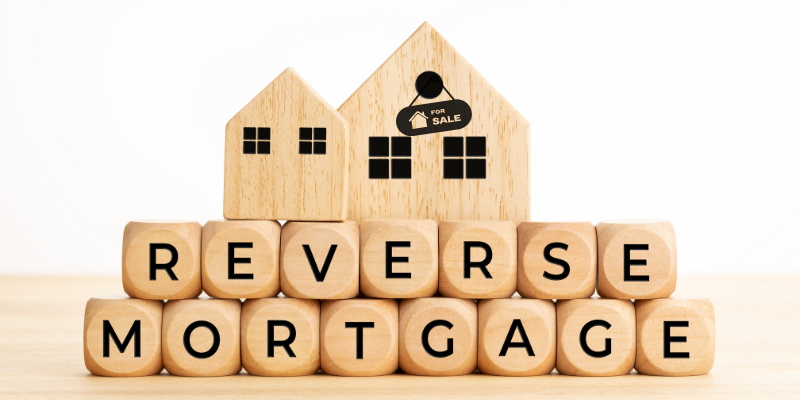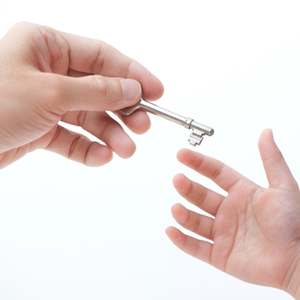
Understanding Reverse Mortgages: A Comprehensive Guide
Understanding reverse mortgages is crucial for homeowners in Tennessee looking to sell their home successfully. A reverse mortgage allows senior homeowners, typically aged 62 or older, to convert part of their home equity into cash without having to sell the property immediately.
This financial tool can provide liquidity while allowing you to remain in your home. However, when deciding to sell a home with an existing reverse mortgage, it’s essential to understand how the loan balance is settled.
The outstanding loan must be repaid from the proceeds of the sale, which includes any accumulated interest and fees over time. If you’re considering selling your Tennessee home under these circumstances, it’s important to consult professionals who understand both real estate and reverse mortgage nuances in Tennessee’s market.
When preparing to sell, working with an experienced team can make the process smoother and more profitable. The Southern Sky Home Buyers team in Tennessee can help homeowners navigate listings, negotiate offers, and ensure that all aspects of the reverse mortgage are properly handled during the sale, providing confidence and clarity every step of the way.
These experts can guide you through appraisals, closing processes, and any state-specific regulations that might impact your transaction. Proper understanding ensures you navigate this process smoothly while maximizing your home’s value and minimizing potential financial burdens associated with repaying the reverse mortgage upon sale.
Common Misconceptions About Reverse Mortgages Debunked
Many homeowners in Tennessee who are considering selling their home with a reverse mortgage often encounter several misconceptions that can lead to confusion. One common myth is that the bank owns your home once you secure a reverse mortgage, which is not true; the homeowner retains full ownership.
Another misconception is that you must sell your home immediately after taking out a reverse mortgage, when in reality, selling is only necessary if you choose to do so or if you move out permanently. Some people also believe that they cannot sell their home while it has an active reverse mortgage, yet homeowners have the flexibility to sell their property at any time, provided the loan balance is repaid from the sale proceeds.
Additionally, many think that heirs cannot inherit a home with a reverse mortgage, but heirs can indeed inherit the property and either pay off the loan or sell the house if they choose. Lastly, there’s often confusion about eligibility; some believe only financially struggling seniors qualify for reverse mortgages, but in truth, it’s available to any homeowner over 62 who meets specific equity and residency requirements.
By understanding these misconceptions, sellers can make more informed decisions about using a reverse mortgage when selling their Tennessee home.
Exploring Different Types of Reverse Mortgages Available Today
When selling a home in Tennessee with an existing reverse mortgage, understanding the different types of reverse mortgages available today can be crucial. Homeowners typically encounter three primary types: Home Equity Conversion Mortgages (HECMs), proprietary reverse mortgages, and single-purpose reverse mortgages.
HECMs, insured by the Federal Housing Administration (FHA), are the most common and widely available, offering flexibility and a range of payment options to fit various needs. Proprietary reverse mortgages are private loans backed by companies that offer higher-value homes a chance to access more significant funds.
On the other hand, single-purpose reverse mortgages are offered by some state and local government agencies or nonprofit organizations and are designed for specific uses like home repairs or property taxes. Understanding these differences helps homeowners make informed decisions when planning to sell their Tennessee home with a reverse mortgage.
Each type comes with its own set of requirements and benefits that can significantly impact the sales process and financial outcomes.
How to Qualify for a Reverse Mortgage: Eligibility Requirements
If you’re thinking about opening up a reverse mortgage to eventually sell your Tennessee property, you need to pay close attention to a couple of basic requirements. First, you or the borrower must be at least 62 years old, and the house must be the borrower’s primary residence.
The home must be the kind the FHA covers: a single-family residence, a designated FHA-approved condo, or a townhouse. Also, the lender will look at your finances to see if you can still pay property taxes, homeowner’s insurance, and everyday upkeep. This part of the review is there to make sure you can keep the house in shape while still having a sufficient amount of built-up home equity.
Finally, HUD requires that you chat with an approved, independent housing counselor. The goal is for you to walk away knowing exactly what a reverse mortgage means, who’s taking the risk, and what will happen down the line. Once you have a handle on all these details, you’ll be ready to manage the Tennessee sale with a reverse mortgage more confidently.
The Process of Applying for a Reverse Mortgage: Step-by-step
Selling your Tennessee home using a reverse mortgage begins with a methodical process that anyone considering this option should memorize. Start with a meeting with a HUD-approved reverse mortgage counselor who clarifies how reverse mortgages actually work and who confirms that the transaction will suit your financial goals.

After the meeting, compile essential paperwork: a copy of your driver’s license or birth certificate to establish age; tax returns, pension statements, or bank statements to document your income; and any paperwork showing the balance of current mortgages or liens against your house. Seek a precise, competitive quote from an established lender who specializes in Tennessee reverse mortgages. That lender will order an appraisal to find the current market value of your home.
If the appraisal and paperwork check out, the lender issues a commitment letter that details the maximum amount available to you, the interest rate, and the repayment terms when the house eventually sells. Read it slowly to capture every critical sentence; don’t hesitate to call your counselor or lender with questions. Closing will occur when you sign the certificate of mortgage repayment, the closing disclosure with line-by-line closing costs, and any lease agreement, should you decide to rent the property back.
Working through the process step by step guards against surprise fees or misunderstandings, making it easier to sell the house you love with a reverse mortgage.
Calculating the Costs and Fees Associated with Reverse Mortgages
Calculating the costs and fees associated with reverse mortgages is crucial for homeowners in Tennessee looking to sell their home. It’s important to understand that reverse mortgages often come with a variety of charges, including origination fees, closing costs, and servicing fees that can impact your financial strategy.
Before selling your home, you’ll want to carefully evaluate these expenses, as they can significantly affect the equity you ultimately receive. In Tennessee, reverse mortgage lenders may also charge interest on the borrowed amount, which can accumulate over time.
Additionally, mortgage insurance premiums are typically required to protect both lender and borrower. Being aware of these potential costs will help you make informed decisions and optimize the sale of your property while ensuring that the reverse mortgage aligns with your financial goals.
When preparing to sell, it’s also wise to work with experienced professionals who can help you navigate these costs efficiently. You can contact Southern Sky Home Buyers to discuss your specific situation, get guidance on minimizing fees, and ensure your Tennessee home sale goes smoothly while maximizing the proceeds from your reverse mortgage.
How Interest Rates Affect Your Reverse Mortgage Options
Interest rates impact nearly every provision of a reverse mortgage, a factor that looms large if you’re planning to sell your Tennessee property. When rates dip, mortgages may permit you to extract a larger slice of home equity; the reason is simple. The outstanding balance compounds at a leaner pace, so more of your home’s value stays available to you at settlement. More equity up front can translate into a larger eventual sales check.
On the flip side, elevated rates inflate the interest that accrues. A faster-growing balance may shrink the cash you can draw at closing, potentially making the reverse mortgage strategy less appealing within your home-sale calculations. Rates also govern the calculation of what’s termed the ‘initial principal limit,’ or the ceiling of the loan’s available proceeds. A lower market rate expands that ceiling, enabling you to borrow a larger lump sum, which can be critical for cash flow planning.
Because every fraction of a percentage can ripple through the loan’s balance, tracking rate trends is not an academic exercise; it is a decisive step in your planning. Knowing current rates allows you to model alternative outcomes and to select a sales strategy that reconciles your equity takedown preferences with your qualifying debts and anticipated proceeds. Estimating or modeling the rate angle can, in a materially different manner, clarify your reverse mortgage’s impact on the net result.
Evaluating Long-term Financial Stability Before Choosing a Reverse Mortgage
When thinking about selling your Tennessee home using a reverse mortgage as part of that sale, it’s vital to gauge your long-term financial stability well in advance. Grasping how a reverse mortgage operates will help you decide whether it serves your overall financial objectives.
Start by reviewing your present financial snapshot, factoring in monthly income, fixed and discretionary expenses, and any outstanding loans. Project how a reverse mortgage will influence your retirement horizon and ongoing household cash flows.
Also, ask how fluctuations in home equity may modify your estate planning and whether any anticipated inheritances could be diminished. Working alongside a financial planner experienced with reverse mortgages will clarify whether the product positions you for lasting financial health.
Finally, investigate the available Tennessee mortgage products to identify the variation in cost, risk, and flexibility. Only by systematically evaluating each key dimension can you determine whether the sale of your home to finance the reverse mortgage supports a secure and deliberate financial future for you and your loved ones.
The Role of Counseling in the Decision-making Process for Potential Borrowers
When considering selling a Tennessee home with a reverse mortgage, the role of counseling in the decision-making process is crucial for potential borrowers. Counseling provides homeowners with comprehensive insights into the complexities of reverse mortgages, ensuring they understand all financial implications before proceeding.
Professional counselors help clarify how a reverse mortgage affects home equity and guide borrowers through potential risks and benefits associated with these loans. They also assist in understanding the nuances of the housing market in Tennessee, helping sellers make informed decisions about timing and pricing when listing their property.
By discussing various scenarios, including selling strategies and financial outcomes, counseling empowers homeowners to make well-informed choices that align with their personal and financial goals. Moreover, counselors are instrumental in explaining legal obligations and rights under a reverse mortgage agreement, which is vital for ensuring compliance and avoiding future disputes.
For homeowners looking to sell quickly, counseling can also connect you with trusted resources to expedite your sale. Working with cash home buyers in Tennessee and nearby cities can help you access fast offers, simplify the closing process, and ensure a smooth transaction while using your reverse mortgage strategically.
Protecting Your Heirs’ Inheritance While Using a Reverse Mortgage
If you’re selling a home in Tennessee that you’re still paying off with a reverse mortgage, protecting the inheritance for your heirs is key. Reverse mortgages convert home equity into cash without requiring monthly payments, providing welcome cash flow in retirement but leaving sticky obligations for your children later. When the house sells, the loan balance is settled to the lender first, so planning keeps the remaining inheritance as high as possible.

Start by talking openly with your children. Share loan statements, repayment terms, and how the mortgage will affect the home sale value, and one is caught off guard. If your home is still the primary asset, a drop in equity could mean a smaller inheritance. Buying a permanent life policy with a cash value component could deliver tax-free proceeds that fill that gap, whereas securing long-term care insurance to prevent a home sale later in retirement works even better.
Work with thoughtful professionals. Financial advisors and estate planners can create a sale strategy that sequences mortgage repayment, tax-sheltered investments, and updated beneficiary designations to protect your overall nest egg while leaving the greatest possible gift to your children. Map conservatively, closely watch home market forecasts, and you will likely preserve the most value for the heirs you cherish.
Tax Implications of Taking Out a Reverse Mortgage on Your Property
If you’re facing a sale of your Tennessee residence still carrying a reverse mortgage, you should map out the possible tax pitfalls first. Reverse mortgages let homeowners, at least 62, freeze the sale clock by turning a slice of equity into cash, sidestepping monthly payments and the need to move.
At the onset, be aware that the lump sum you receive through the mortgage usually isn’t counted as taxable income. So it won’t show up on your 1040 and won’t dent your taxable income in the year you withdraw it. Still, a sale later on changes the equation: you may owe capital gains tax if the appreciation on the property sits above the $250,000 or $500,000 exemption limit, depending on your filing status and whether you meet the ownership and use tests.
Keep in mind, too, that the interest tacked on to the reverse mortgage compounds and isn’t deductible until you move out, sell, or pass on. You will report that interest in the tax year the sale closes, when the pending balance is finally settled. Because of these moving pieces, a chat with a local tax planner who’s familiar with reverse mortgages and Tennessee regulations is the safest way to gauge your tax exposure before the closing papers hit your desk.
Legal Considerations When Selling a Home with a Reverse Mortgage in Tennessee
If you plan to sell a Tennessee home encumbered by a reverse mortgage, a solid grasp of the legal framework is essential. Begin by revisiting your reverse mortgage contract, as it may impose conditions that govern the sale. Every loan is unique, so the specifics may vary.
Upon sale, the loan balance is basically the sum of the initial loan plus ongoing interest, mortgage insurance premiums, and any fees, which will be satisfied using the proceeds. To prevent surprises down the line, request a payoff statement from the lender as soon as you decide to sell. These documents typically have a limited expiration, so act quickly.
In addition, Tennessee statutes obligate you to deliver a disclosure statement. Sellers must state any known defects and, in some cases, supply specific inspection reports. Protective language in the sales contract alone is insufficient; the state disclosure is mandatory. An attorney versed in real estate forms and obligations can ensure that all documents are correctly drafted and filed.
Early communication is key since reverse mortgage repayment tends to trigger lender timelines. The servicer may require that closing occur within a designated timeframe to prevent the loan from spiraling further. Clear coordination between your real estate agent, lender, and title company will minimize the risk of hiccups at the closing table. Meeting these criteria will keep the process compliant and efficient.
Navigating the Housing Market: Selling Your Home with an Active Reverse Mortgage
If you’ve taken a reverse mortgage on your Tennessee home, selling that property can feel daunting, but it’s definitely manageable with advance preparation. Key to a smooth sale is knowing that the loan becomes due when you transfer the home to another party, so the sale itself must generate enough proceeds to cover the outstanding mortgage balance plus any deferred costs.
Start the sale process by reaching out to your reverse mortgage servicer. Verify the current payoff amount, including any anticipated mortgage insurance premiums, origination fees, or servicing fees that could be charged at closing. Next, enlist a Tennessee real estate agent who regularly manages transactions involving reverse mortgages; they can ensure you comply with all program guidelines.
Once you have that team in place, you can evaluate the Tennessee housing market to arrive at a listing price that attracts buyers yet satisfies your remaining loan balance. Gather the payoff letter from your lender and any property-specific documents, such as recent tax assessments or lender-required repairs, so prospective buyers and their lenders can move quickly to the closing table.
Planning these transaction steps ahead of time minimizes stress and maximizes proceeds, allowing you to successfully complete the sale and move on to the next chapter of your life.
What Happens If You Sell a House That Has a Reverse Mortgage?
When you decide to sell a house with a reverse mortgage in Tennessee, it’s crucial to understand the process and implications involved. A reverse mortgage allows senior homeowners to access their home equity without monthly payments, but selling the property requires careful planning.
Once you initiate the sale of your Tennessee home, the outstanding balance on the reverse mortgage must be repaid from the proceeds. This includes any accrued interest and fees associated with the loan.
It’s important to note that if your home’s sale price is higher than what you owe on the reverse mortgage, you retain any excess funds as profit. Conversely, if the sale price is less than the outstanding balance, as a non-recourse loan, neither you nor your heirs will be responsible for paying more than your home’s value at sale.
Selling a house under these conditions requires clear communication with your lender and potential buyers to ensure a smooth transaction. For homeowners seeking a faster sale, working with cash home buyers in Knoxville, TN, and surrounding cities can simplify the process, provide competitive offers, and help you close efficiently while handling the reverse mortgage obligations.
Do I Have to Pay Capital Gains If I Sell While Having a Reverse Mortgage?

Selling your reverse-mortgaged house in Tennessee means you need to be aware of the capital gains tax. That tax kicks in when you sell a property for more than what you paid for it. If your home has a reverse mortgage but has gained substantial value, you could still face this tax.
The good news is that the IRS gives certain breaks. The primary residence exemption could let you shield some of your profit from taxes, provided you meet certain tests. Living in the house for at least two of the five years before the sale generally qualifies. If you meet this condition, the IRS lets you exclude up to $250,000 of gain for single taxpayers and up to $500,000 for married couples filing jointly.
Keep in mind that the reverse mortgage balance does not reduce the gain you report. When you settle the reverse mortgage at closing, that amount is deducted from your sale proceeds, but it does not enter your capital gains calculation. The IRS only looks at what you gained over your basis in the property. Because tax rules can get complicated, you are best off speaking to a tax expert who can walk you through the sale and help you keep the tax bite as low as possible.
What Is the Biggest Problem with Reverse Mortgages?
Seniors planning to sell a Tennessee house that carries a reverse mortgage often encounter a serious pitfall: shrinking equity. Approved to convert a portion of their home equity into cash, borrowers gradually draw the funds, which raises the debt while the remaining equity keeps drying up.
When the time comes to sell, the remaining equity risks falling so low that the debt outweighs the house’s resale price. This danger multiplies in a declining real estate market or whenever the borrower taps larger amounts. Reverse loans also typically carry steeper origination fees and closing costs than conventional home loans, pulling even more equity away.
Caution is also warranted around the loan’s payback trigger. Reverse mortgages become fully reimbursed whenever the owner leaves the home, voluntarily or through a sale. For borrowers not ready for the transfer costs or payback timeline, a hasty decision can lead only to further surprise losses.
To navigate a smooth sale, borrowers should measure the potential payoff well before planning the transaction and consult a trusted financial planner capable of calculating the options.
Looking to sell your Tennessee home with a reverse mortgage? Whether you want to sell quickly, skip expensive repairs, or enjoy a hassle-free process, Southern Sky Home Buyers is here to help. We provide fair cash offers, manage all the paperwork, and make the sale seamless. Ready to sell or have questions? Call us at (865) 249-0226 for a no-obligation offer and get started today!
Helpful Tennessee Blog Articles
- Tennessee Inheritance Laws For Real Estate And Housing
- Understanding Closing Costs in Tennessee
- Can You Back Out Of A Real Estate Contract In Tennessee?
- Maximize Your Sale: Selling A Tennessee Home As-is
- Tennessee House Vacancy Rules And Insurance Implications
- Guide To Selling Your Tennessee Home By Owner
- Tenant Damage Responsibilities In Tennessee Rental Properties
- Sell Your Tennessee Home Successfully With A Reverse Mortgage
- Tips for Selling and Buying a Home Simultaneously in Tennessee
- Tennessee Squatter’s Rights
- Can You Put a Lien on a House in Tennessee?
- How to Terminate a Real Estate Listing Agreement in Tennessee

| MORTGAGE INTEREST | CONVENTIONAL MORTGAGE | FIRST MORTGAGE | HOME LOANS | HOME MORTGAGE | MORTGAGE LENDING |
| MIDDLE TENNESSEE | HOME-EQUITY LOAN | HOME-EQUITY | CHATTANOOGA | CHATTANOOGA TN | INTEREST PAYMENTS |
| HOMEOWNERS INSURANCE | REFINANCING | REFINANCE | HOME OWNERSHIP | HOMEBUYERS | CREDIT |
| PROPERTY OWNERSHIP | AMERICAN | AMERICA | CHATTANOOGA, TN | MONEY | LOAN OFFICER |
| TELEPHONE | PHONE | MOUNT JULIET | LINE OF CREDIT | CREDIT LINE | REALTOR |
| PRIVACY | MESSAGE | MEDICAID | NASHVILLE, TN | FINANCING | |
| FICO SCORE | CREDIT SCORES | U.S. DEPARTMENT OF HOUSING AND URBAN DEVELOPMENT (HUD) | TEXT MESSAGE | TEXT MESSAGING | PHONE NUMBER |
| PROPERTY APPRAISAL | CREDIT COUNSELING | WEALTH | SUPPLEMENTAL SECURITY INCOME | SUPPLEMENTAL SECURITY INCOME (SSI) | RESOURCE |
| POLICY | PERSONAL FINANCE | INVESTORS | ESCROW | DOWN PAYMENTS | CREDIT SCORE |
| COMPANY | CHILD | REVERSE MORTGAGE THE | A REVERSE MORTGAGE THE | REVERSE MORTGAGE IS A | EQUITY CONVERSION MORTGAGE HECM |
| A LINE OF CREDIT |
